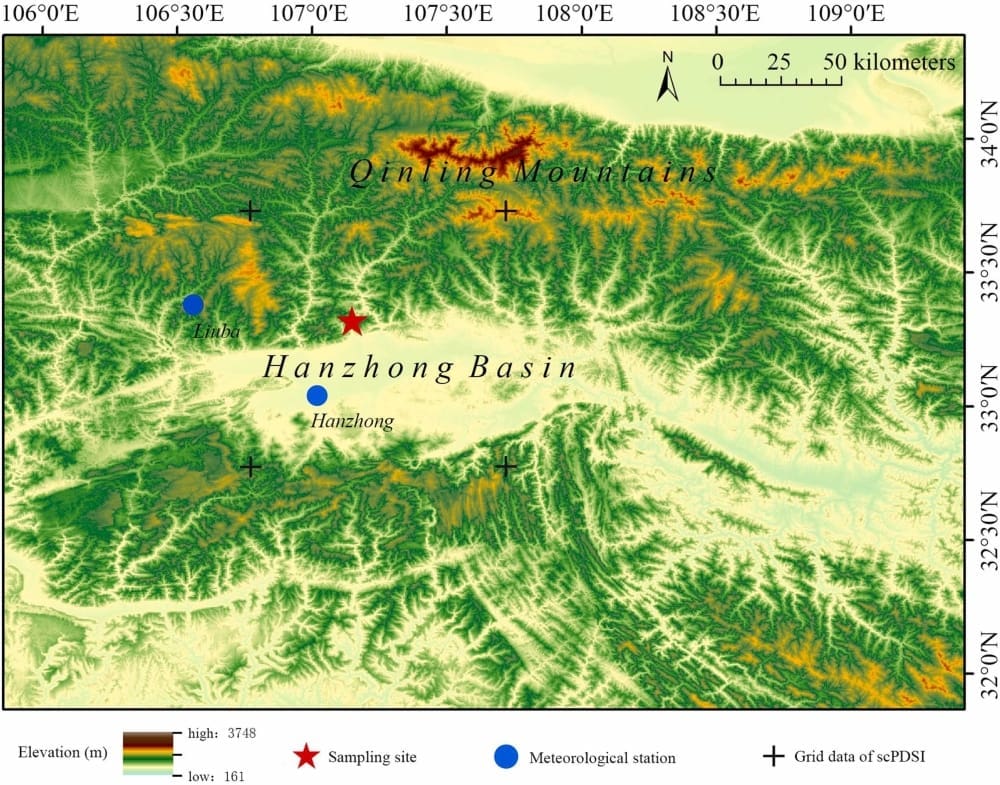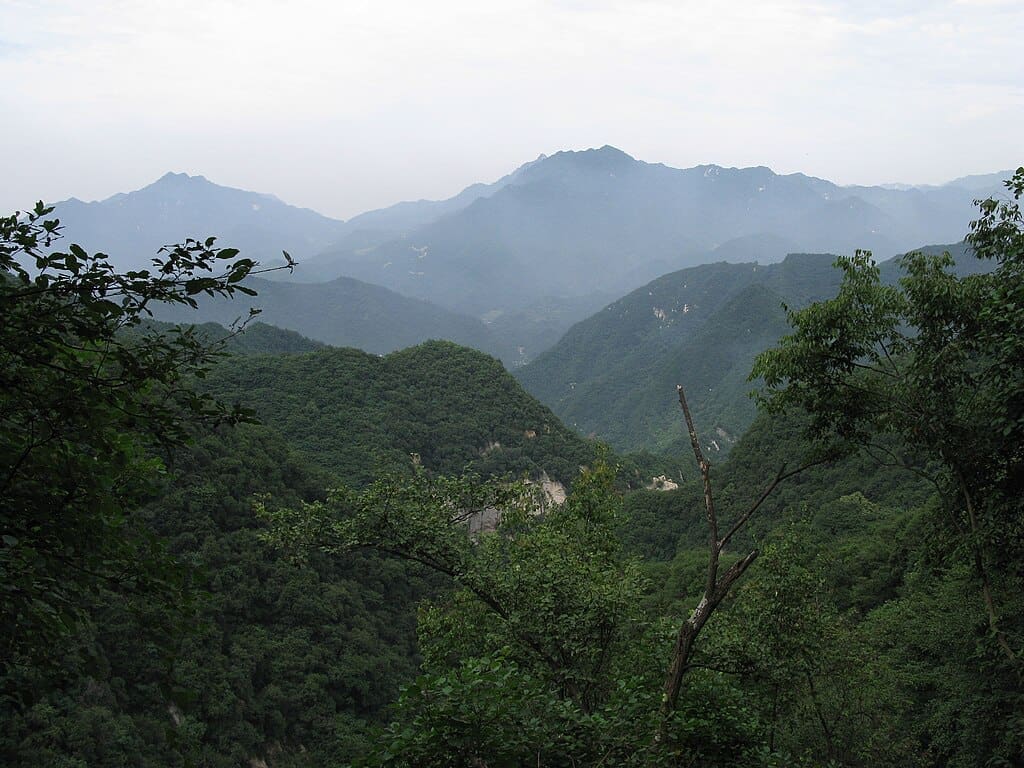By Chinese Academy of Sciences
Forests, which cover 31% of the Earth’s land surface, are essential for maintaining biodiversity and regulating the climate. However, climate change poses a significant challenge to forest growth, with different tree species responding very differently to extreme drought conditions.
As the frequence and intensity of extreme drought events increase under global warming, there is an urgent need for in-depth research into the climate adaptability of different tree species, in order to take effective measures to protect forest ecosystems and combat the effects of global warming.
According to a study published in Global Ecology and Conservation, a research team led by Profs. CAI Qiufang and LIU Yu from the Institute of Earth Environment of the Chinese Academy of Sciences (CAS) has investigated the changes in Pinus tabulaeformis Carr. and Tsuga chinensis Pritz. on the southern slopes of the Qinling Mountains (SSQM) in the context of global warming. The Qinling Mountains mark the southernmost distribution boundary for natural P. tabulaeformis and the northernmost boundary for natural T. chinensis.

The researchers found that the climate response patterns of P. tabulaeformis and T. chinensis on the SSQM have undergone qualitative changes with global warming. The sensitivity of P. tabulaeformis to temperature and precipitation has decreased over time, while T. chinensis has become more dependent on hydrological conditions.
During extreme drought events, P. tabulaeformis shows a stronger drought resistance compared to T. chinensis. The stronger drought resistance of P. tabulaeformis implies a greater ability to adapt to the warming and drying climate trend, potentially giving it a greater advantage in the current forest ecological composition. In contrast, T. chinensis is less adaptable.
This study highlights that different tree species in the same habitat exhibit significant heterogeneity in growth-climate response, and forest management and conservation measures should be species-specific.
More information: Mei Xie, Qiufang Cai, Yu Liu, Meng Ren, Qiuyue Zhou, Hanyu Zhang, Kebayier Meng, ‘Assessing climatic response and drought resilience in growth of Pinus tabulaeformis Carr. and Tsuga chinensis Pritz. on the southern slope of the Qinling Mountains’, Global Ecology and Conservation (2024, Volume 53, e02999); DOI: 10.1016/j.gecco.2024.e02999. CAS – Press Release. Featured image credit: Caitriana Nicholson | CC BY-SA 2.0, via Wikimedia Commons




